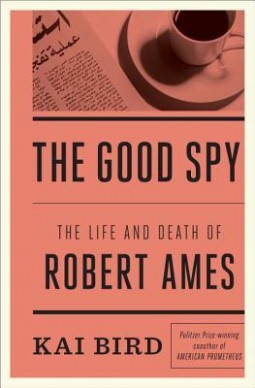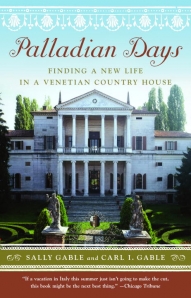This review contains affiliate links, which earn me a small commission when you click and purchase, at no extra cost to you. Thank you for supporting my small business and allowing me to continue providing you a reliable resource for clean book ratings.
Robert Ames was a CIA agent in the 1960s and 1970s, one who did his intelligence-gathering the “old-school” way: by listening and carefully cultivating relationships with key players. He learned Arabic and spent his entire career in the Middle East, coming to spend most of his time and energies on the Holy Land area. He not only was passionate about the issues and people there; he actually loved the area, its rich history and culture, and enjoyed his postings there. Rather than just neutrally collecting information for the use of higher-ups, he fervently hoped that his work could one day result in a lasting peace in an area that has long been full of complex, dangerous conflict.
As Kai Bird asserts in his compelling and finely crafted book, this “Good Spy” could have made a real difference in the course of history. But his life and work were cut short when he was killed in the 1983 bombing of the American embassy in Beirut. That bombing stunted Ames’ work and significantly set back diplomacy in the region. The cascade of events even contributed in some ways to later terrorist acts such as 9/11.
Thirty years later, it is disheartening to read about the impressive work Bob Ames did as an agent, knowing how far we still are from peace in an area that’s very small but whose politics affect the whole world. Bird takes readers through Ames’ career, his interests, his dedication, the relationships he formed that gave the United States the ability in the 1970s to push toward peace between the Israelis and Palestinians. Ames was able to make lasting friends who were vital players in Arab groups, including one man who was high up in the PLO and close to leader Yasser Arafat. Their relationship allowed the United States a “back door” to compromises and diplomacy that would not have been possible without Ames’ work.
I was absolutely fascinated by this book; it was challenging reading, to be sure, that required real focus so I could absorb all the pertinent details about places, people, and politics. But it kept my interest and left me feeling well informed about the big picture, better educated. Bird is a gifted writer whose expertise and experience show in every sentence; his conclusions throughout are balanced and well sourced, and it’s clear he spent a great deal of time and effort gathering a tremendous amount of information from key sources. I read Bird’s biography of Robert Oppenheimer as well, American Prometheus, and found it equally compelling.
This is a must-read for anyone interested in the complex history of the divisions in the Middle East, especially in the Holy Land area and its immediate environs, and all the repercussions of each action taken by locals and world governments. Highly recommended.
Rated: Moderate, for a few uses of strong language and occasional uses of moderate and mild language. There is mention of violence throughout the book, of course, though only the bombing of the Beirut embassy gets at all detailed. There are only a few references to sexual matters, mentioning some characters’ affairs, etc., but no details.
Click here to purchase your copy of The Good Spy on Amazon.





Pingback: Great divides | Life and Lims
Pingback: Nonfiction dominated my favorite books in 2014 | Life and Lims